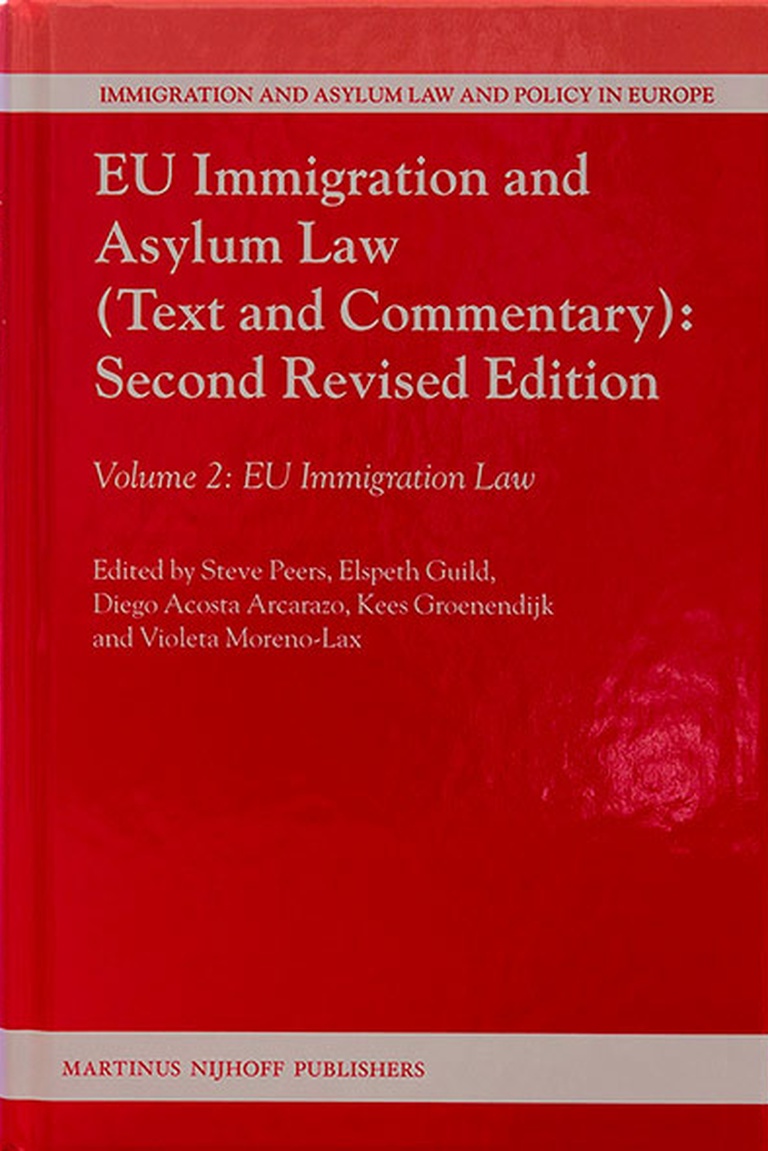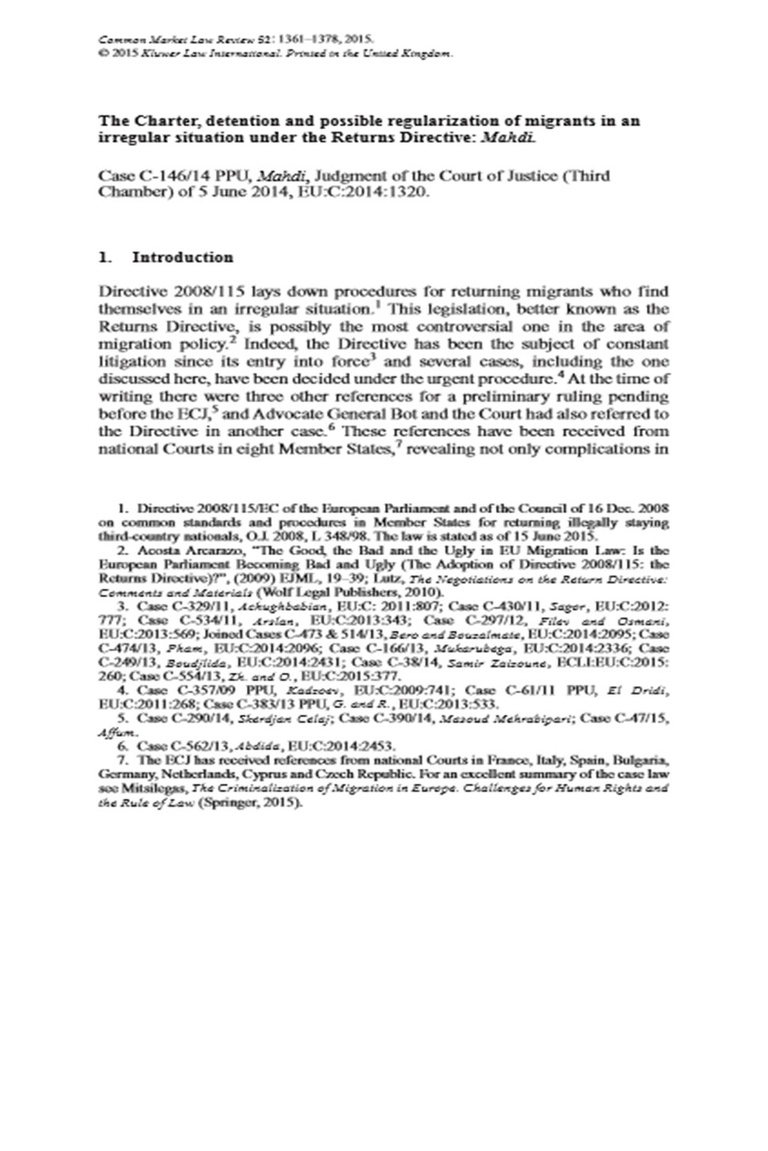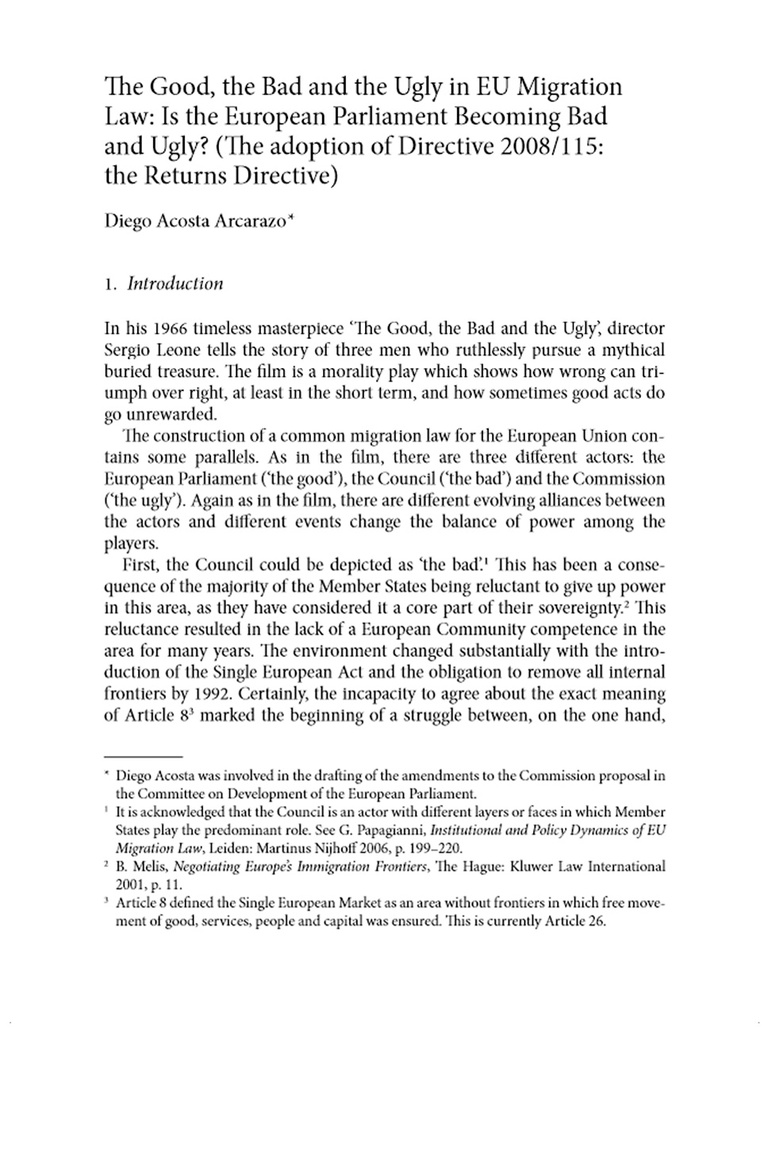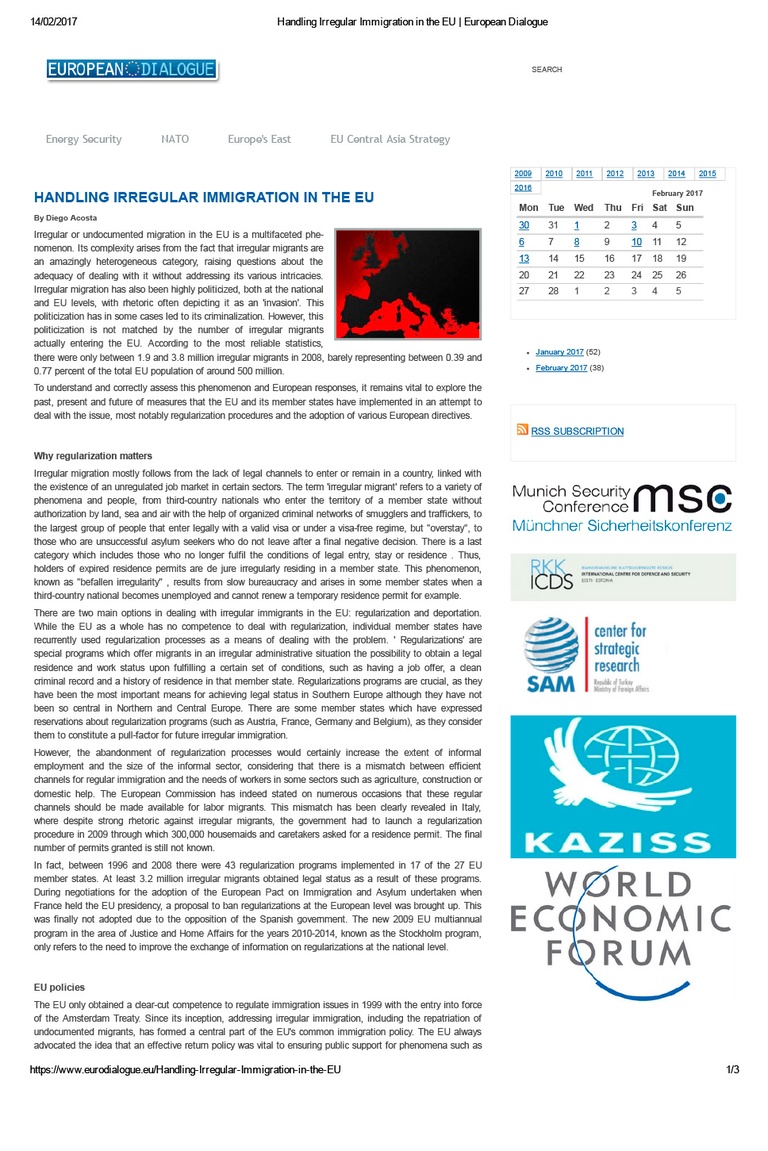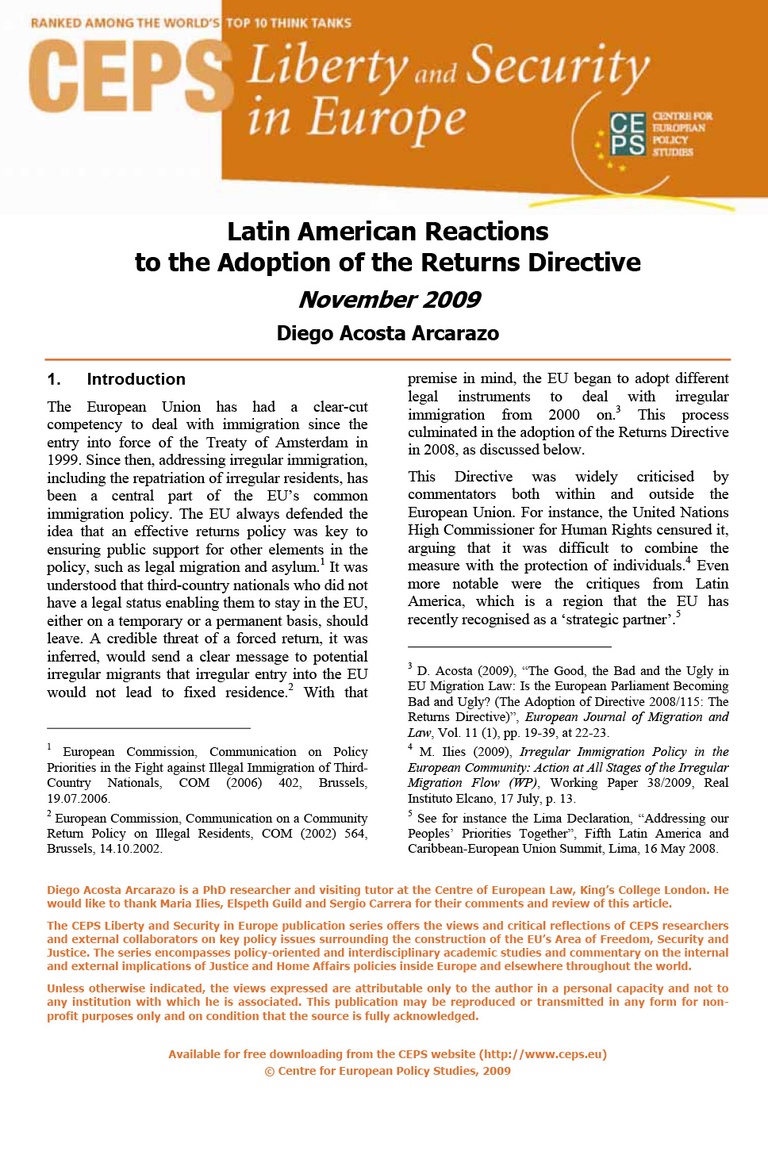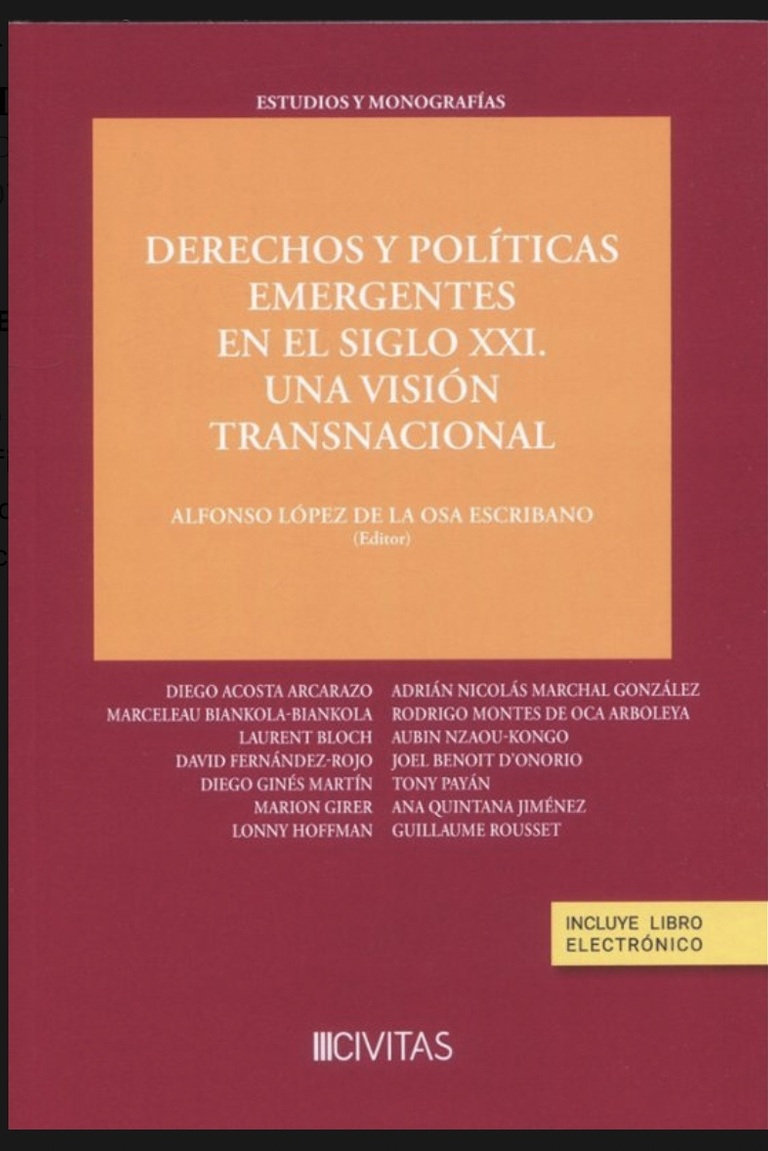The challenge of irregular or undocumented migration in Europe is important not in terms of numbers but rather in terms of the highly politicised debate surrounding it. The term ‘irregular migrant’ refers to a variety of situations, from third-country nationals who enter the territory of a member state without authorization by land, sea and air with the help of organized criminal networks of smugglers and traffickers, to the largest group of people that enter legally with a valid visa or under a visa-free regime, but ‘overstay’, to those who are unsuccessful asylum seekers who do not leave after a final negative decision. There is a last category which includes those who lose their regular status in the course of a renewal of a residence permit. Thus, holders of expired residence permits are de jure irregularly residing in a member state.
Suggested citation: Diego Acosta, ‘The Returns Directive: Possible Limits and Interpretation’ in K. Zwaan (ed.), The Returns Directive: Central Themes, Problem Issues, and Implementation in Selected Member States (Wolf Legal Publishers, Nijmegen, 2011) pp. 7-24. Reviews Anja Wiesbrock (2012) 49 Common Market Law Review 441-442.

